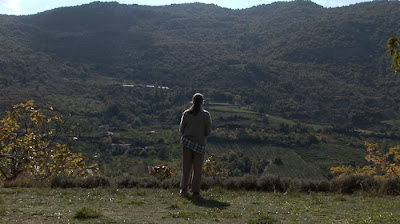I was recently introduced to the work of John Killick by David Lale, a filmmaker also interested in the subject of dementia.
Killick is a writer who has published two books by of poems by people with dementia. The poems are fashioned out of the speech of individuals with the condition. He explains,
"I write down or tape-record, and then transcribe, the words of a person. The resulting poem involves selection, but I never add a word. I share the poem back with the person and seek their permission to show to others, and in some cases to publish. "
He gives these poems a title and form on the page. They are beautiful and poignant. Some read like a monologue from a play by Samuel Beckett; the sentences struggle to work, nothing is certain and all linguistic rules seem provisional. But even the most confused collection of words offer more than mere clues, they speak for a person living in a world of feeling, a human being with worries and desires who should be listened to carefully. Killick believes that to approach these texts as poetry helps one to bypass the often unhelpful habits of rational thought. I would agree that to tune into, and give attention to the seemingly bizarre metaphores and images created by someone with dementia, a carer can gain important insights, which can be used by a Specal-like care approach to make the sufferer's life much less frightening.
ON THE OTHER SIDE
Killick is a writer who has published two books by of poems by people with dementia. The poems are fashioned out of the speech of individuals with the condition. He explains,
"I write down or tape-record, and then transcribe, the words of a person. The resulting poem involves selection, but I never add a word. I share the poem back with the person and seek their permission to show to others, and in some cases to publish. "
He gives these poems a title and form on the page. They are beautiful and poignant. Some read like a monologue from a play by Samuel Beckett; the sentences struggle to work, nothing is certain and all linguistic rules seem provisional. But even the most confused collection of words offer more than mere clues, they speak for a person living in a world of feeling, a human being with worries and desires who should be listened to carefully. Killick believes that to approach these texts as poetry helps one to bypass the often unhelpful habits of rational thought. I would agree that to tune into, and give attention to the seemingly bizarre metaphores and images created by someone with dementia, a carer can gain important insights, which can be used by a Specal-like care approach to make the sufferer's life much less frightening.
ON THE OTHER SIDE
I'm just going round to see what's round the corner...
I've lived here twenty-five weeks in the city,
up and down the language, twice up and down...
I'd better just have another look...
I'll tell you if you can understand the language.
And I'm talking, talking all the time...
I'm just off to see if it's changed at all...
I didn't know if you would understand,
with you living on the other side...
I'll just see if it's all right over there...
Young girls wearing white on the other side
of their dress getting married...
I'll just see if I can get far enough along...
©John Killick
Other poems are full of memories, this by Ian McQueen, "a younger man with dementia from the west of Scotland",
DEFENCE
Bobby was bigger than me.
And when I got it, I got
a right good thwack from this bloke.
He just ladled into me,
and I couldn’t stotter, I was
lying in the playground. Biff. Out.
Bobby was going to get a doing.
And I administered it.
If you steam into me: Stars.
I cloaked myself in my self
and that was good for me.
I got that from him too.
I had my dose
and Bobby had his dose.
Big Al’s bigger than me too,
but I’m not going
to lie down under his blows.
He’s in there. I can still
cloak myself in my self.


















